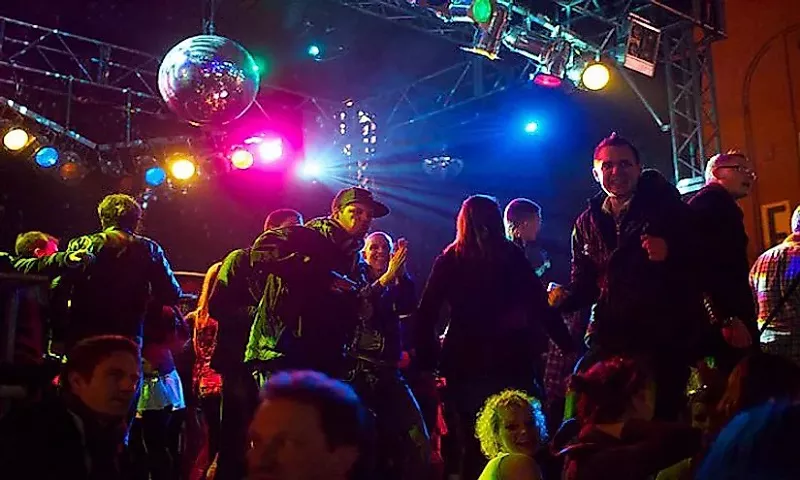Disco, a musical and cultural phenomenon that dominated the 1970s, remains a subject of fascination and curiosity. From its glitzy dance floors to its pulsating beats, disco was more than just a genre of music; it was a lifestyle. However, as the ’70s gave way to the ’80s, something changed. Disco began to fade into obscurity, and the question that still lingers is: What killed disco?
The Rise of Disco
To understand what ultimately led to disco’s decline, we must first delve into its origins and meteoric rise. Disco emerged in the early 1970s, primarily in New York City, as a fusion of various musical influences, including funk, soul, and Latin rhythms. The term “disco” itself is derived from the French word “discothèque,” referring to nightclubs where this music was predominantly played. It quickly became the soundtrack of a generation, with its signature four-on-the-floor beat and groovy basslines captivating audiences across the world.
The Discotheque Revolution
The disco phenomenon extended beyond just the music; it was a cultural revolution. Discotheques, or discos, became the epicenters of a new kind of nightlife. These venues were characterized by their mirrored balls, dazzling light shows, and a diverse crowd of music enthusiasts. Disco wasn’t just about dancing; it was about self-expression, freedom, and unity on the dance floor.
The Glamour of Disco
One of the key factors behind disco’s meteoric rise was its association with glamour and extravagance. Disco fashion was all about glitz and glamour, with individuals donning shimmering outfits, platform shoes, and bold accessories. The disco era was also marked by a growing acceptance of diverse sexual orientations, with iconic venues like Studio 54 serving as safe havens for the LGBTQ+ community.
The Sound of Disco
Disco music itself was infectious and diverse. From Donna Summer’s sultry vocals to the Bee Gees’ infectious falsettos, disco boasted a wide range of artists and styles. Iconic tracks like “Stayin’ Alive” and “Le Freak” are still synonymous with the era. The disco sound was characterized by lush orchestration, soaring strings, and catchy melodies that made it impossible not to move to the rhythm.
The Disco Demolition Night
While disco was enjoying its peak, cracks were beginning to form in its façade. The turning point came on July 12, 1979, at Chicago’s Comiskey Park, during an event known as “Disco Demolition Night.” Radio DJ Steve Dahl spearheaded an event where disco records were detonated on the field between a doubleheader baseball game. The event symbolized a growing backlash against disco, and it marked a moment when disco’s popularity began to wane.
Disco’s Commercialization
Another factor that contributed to disco’s decline was its commercialization. Record labels and artists rushed to capitalize on the trend, saturating the market with mediocre disco tracks. The quality of disco music began to suffer as quantity took precedence. Audiences started to grow weary of the formulaic disco sound, leading to a sense of oversaturation.
The Anti-Disco Movement
The backlash against disco wasn’t confined to Chicago’s baseball stadium. Many critics and music enthusiasts began to express their disdain for the genre, claiming it lacked depth and artistic value. Some even argued that disco represented the “dumbing down” of music. This sentiment further contributed to the decline of disco’s popularity.
Disco and the Racial Divide
Another critical aspect of disco’s decline was its connection to race. While disco originated in African American and LGBTQ+ communities, it quickly became a mainstream sensation. Some argue that disco’s commercialization led to a whitewashing of the genre, erasing its roots and alienating its core audience. This racial tension played a role in disco’s eventual downfall.
The Rise of Punk and New Wave
As disco began to lose its grip on the music scene, other genres were rising to prominence. Punk rock and new wave music, known for their raw and rebellious sound, offered an alternative to the polished disco tracks. Bands like The Clash and Blondie were at the forefront of this musical shift, providing a stark contrast to the disco phenomenon.
Disco’s Decline on the Dance Floor
By the late ’70s, disco’s dominance on the dance floor was waning. Many clubs, once dedicated to disco, started diversifying their playlists to accommodate the changing musical landscape. This shift marked the end of the disco era’s exclusive reign over nightlife.
The Disco Backlash
The backlash against disco reached its peak in 1979 when the “Disco Sucks!” movement gained momentum. Some radio stations held “Anti-Disco” events, encouraging listeners to burn their disco records. This widespread rejection of disco marked a significant shift in musical tastes.
The End of an Era
By the early 1980s, disco had all but disappeared from the mainstream music scene. The once-thriving discotheques were closing their doors or reinventing themselves to fit the changing times. The glitzy, glamorous world of disco seemed like a distant memory.
Disco’s Legacy
Despite its relatively short-lived heyday, disco’s legacy endures. Elements of disco can be heard in various genres, from dance-pop to electronic music. Its influence can also be seen in the modern club scene, with DJs and producers continuing to sample disco tracks.
Conclusion
In conclusion, disco’s decline was not the result of a single factor but a culmination of several forces. The backlash against disco’s commercialization, racial tensions, and changing musical preferences all played a role in its downfall. However, it’s important to remember that while disco as a dominant genre may have faded, its impact on music, fashion, and culture is undeniable. Disco’s spirit of inclusivity, self-expression, and the joy of dance still lives on in the hearts of those who experienced its glittering heyday.
Disco may have died on the mainstream stage, but its beat continues to pulse through the dance floors of history, reminding us of an era when the world came together to dance, celebrate, and be free. Disco will forever be a part of our musical heritage, and the question of what killed disco remains a testament to its enduring mystique.

